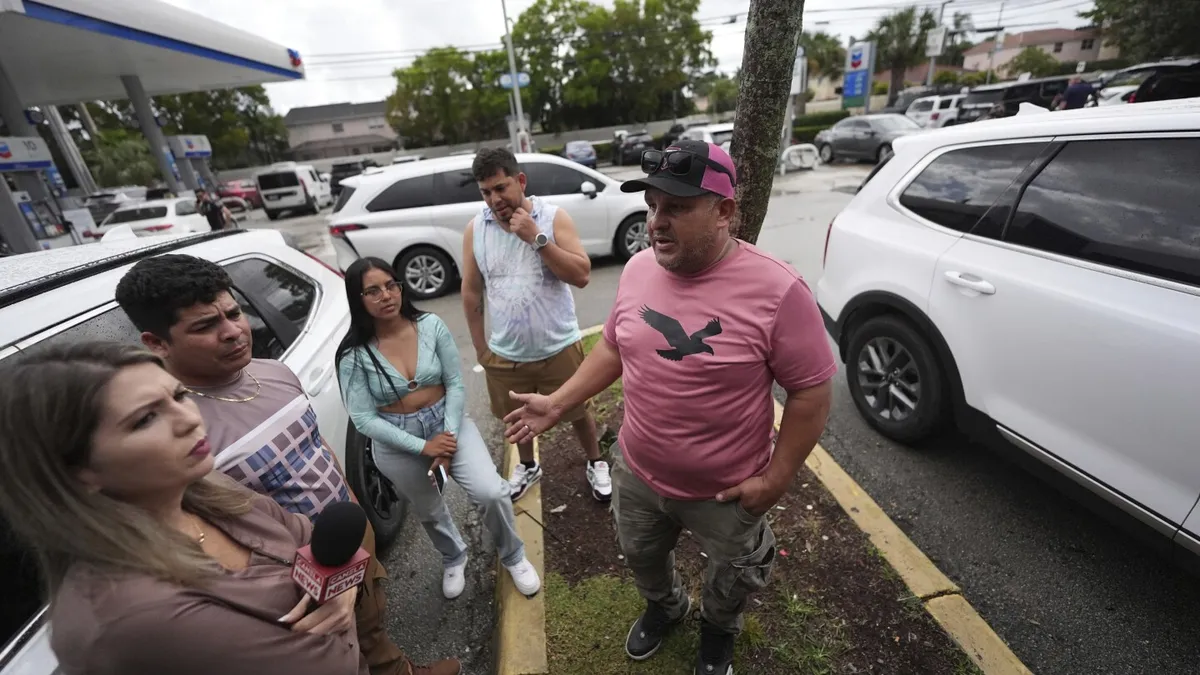
A federal judge has intervened to block the Trump administration's attempt to deport five Venezuelans under an 18th-century law known as the Alien Enemies Act. This legal action marks the beginning of a significant wave of litigation concerning the controversial use of this historical law, even before President Trump has officially announced his intentions. The Alien Enemies Act, which dates back to 1798, has drawn attention due to its previous application during World War II, where it was used to justify the internment of Japanese-American civilians.
On Saturday, the American Civil Liberties Union (ACLU) and Democracy Forward filed an extraordinary lawsuit in federal court in Washington D.C. The lawsuit argues that the order would categorize a Venezuelan gang, known as Tren de Aragua, as a "predatory incursion" by a foreign government. The implications of this classification would allow for the deportation of any Venezuelan individual in the United States, labeling them as members of this gang without regard for the actual circumstances of their cases.
Chief Judge James E. Boasberg of the D.C. Circuit responded to the lawsuit by issuing a temporary restraining order that prevents the deportation of the five Venezuelans currently in immigration custody. This order will remain in effect for 14 days, allowing time for further legal examination. Boasberg emphasized that his decision was made "to preserve the status quo" and has scheduled a hearing to determine if the protection should be extended to all Venezuelans residing in the United States.
In response to the temporary restraining order, the Trump administration quickly appealed, arguing that halting a presidential action before it has been formally announced would significantly hinder the executive branch's authority. The Justice Department contended that if the restraining order were upheld, it could set a precedent allowing district courts to block urgent national-security actions based solely on the receipt of a complaint. This could potentially extend to critical operations such as drone strikes and intelligence missions, according to their appeal.
The recent surge of litigation surrounding the Alien Enemies Act underscores the contentious nature of this law, which could grant President Trump expansive powers to deport individuals living in the country illegally. Critics express concern that this law could allow the administration to circumvent standard protections typically afforded under criminal and immigration laws. Historically, the Alien Enemies Act has only been invoked during wartime and requires a formal declaration of war for its application.
Immigration attorneys have expressed alarm over the government's actions in the lead-up to the lawsuits. Ahilan Arulanantham, an immigration lawyer based in Los Angeles, reported that on Friday night, it appeared the government was preparing to deport Venezuelans without the legal authority to do so. Arulanantham stated that he filed two petitions that night to block any such actions, highlighting the urgency and seriousness of the situation.
The unfolding legal battles and the implications of the Trump administration's potential use of the Alien Enemies Act will undoubtedly remain a significant topic of discussion in the coming days as the nation navigates the complexities of immigration law and executive power.